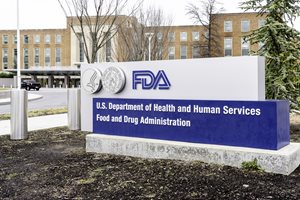Physicians heavily rely on laboratory tests to make critical decisions about their patients’ care—roughly 70% of healthcare decisions depend on laboratory test results according to the Centers for Disease Control and Prevention (CDC). For example, results from laboratory tests can be the sole determinant of whether a patient with cancer gets a particular therapy, potentially risking the patient’s life with an inaccurate test result. Because of the important role of laboratory tests in healthcare decisions, it is essential to ensure these tests work.
While the U.S Food and Drug Administration (FDA) actively oversees tests made outside laboratories by test manufacturers, tests made and run within a single laboratory, known as laboratory, developed tests or LDTs, are often used without such oversight. The FDA’s approach was developed half a century ago when tests made and used in single labs were generally simple, often made to address local individual needs, and mostly manufactured in small volumes. Therefore, the FDA, as a policy approach, generally did not enforce requirements for LDTs. However, since then, LDTs have evolved. Due to the increased risk to patients, it is time to reconsider this approach…















